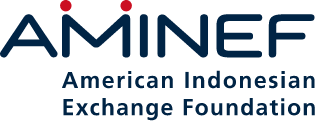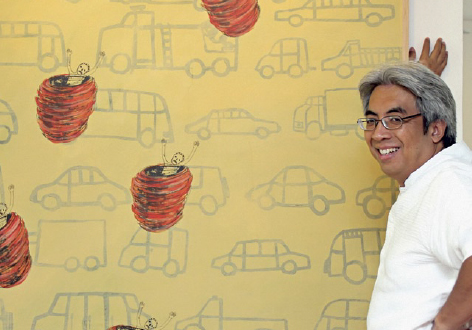“It is important for Indonesians to receive Fulbright scholarships. First, because this is an opportunity to study abroad. Second, so they will be aware that there is a sky above the sky,” said Imam Budidarmawan Prasodjo. He received a Fulbright scholarship to study for a master’s degree in sociology from Kansas State University.
Born in Purwokerto, Central Java, in 1960, he believes that the Fulbright Program opens up wider opportunities for meeting other scholars from around the world. “There is a sort of hidden curriculum that is more beneficial than the lecture program itself,” Imam said.
For him, the opportunity afforded by a Fulbright scholarship could be considered a continuation of his education in America. The first time he went to the United States was as an exchange student with the American Field Service (AFS) program in 1978. “The experience of meeting together and participating in conferences and brainstorming with leaders, knowledge-seekers, and fellow school alumni gave me the motivation and energy to make changes,” he said.
“Education in America led me to think more freely and discover a wider world. It was as if I was playing football and the field grew many times larger than the standard size of 110 X 90 meters,” he said. In his mind, the importance of his studies was that they made him more than just a social scientist but also an agent for change.
As an example, Imam considers his activities to be more than just those of a sociologist or an ordinary researcher. He also actualizes his ideas and findings in development programs. Through a foundation he established, Yayasan Nurani Dunia, he repairs houses and schools in conflict-prone areas. Imam is known not only as a sociologist, but also a social activist who works hard for peace and the welfare of many.
His activities are spread over poor areas and slums that need access to clean water, public facilities, libraries, and educational services. In Imam’s opinion, “Now what is needed is people who can pay attention to areas outside of their own fields. The challenges for the Fulbright Program are how to select and bring together people who are ‘unreasonable’ to deal with a period of time that is also ‘unreasonable,’ that doesn’t make sense.”
This means that people must find and support innovative activities in the community, by encouraging public innovators, those who dare to be seen as crazy for wanting to contribute their best. These “unreasonable” people are the catalysts of change who carry a personal mission to improve future society
“The Fulbright Program should facilitate innovative educational services and create social entrepreneurs. If not, then Fulbright only becomes an educational service agency, just an ordinary educational service,” he said.
Consequently, a Fulbright recipient has to be chosen more selectively. It should not be about the number of recipients, but the quality of the recipients. “Those who come from America must possess a spirit eager to learn, to gain knowledge, to conduct research here. They must bring their ideals in order to offer something innovative and needed here, and not treat it as a tourist program,” he said.
Imam himself has many times accommodated Fulbright grantees from America. From his experiences, the graduate student exchange program would be more substantial and useful when balanced by more than just building functional friendships. He suggests that every scholar should find a way to realize their ideas and observe issues that appear to be outside their field.
“There are people who criticize me for paying too much attention, not focused, on this and that,” he said. “But we need the virtues of innovation, and it is only possible if we have a passion for enriching our scientific interests with a more personal dimension.”
Imam feels that has been achieved when one Fulbrighter can say to another Fulbrighter, “I entrust my children to you.” By building friendship, he asserted, suspicions are eroded and cooperation and brotherhood among nations can be realized.
As an example, Imam has provided his home as a kind of cultural center, an art center. There, Fulbrighters, their families, supporters and successors can discuss and collaborate in order to create and cultivate a true program for the people.
Last Updated: Jun 3, 2019 @ 3:20 pm




